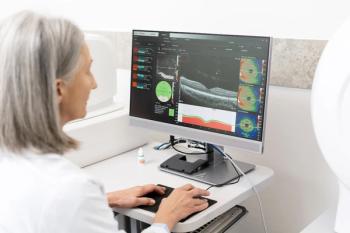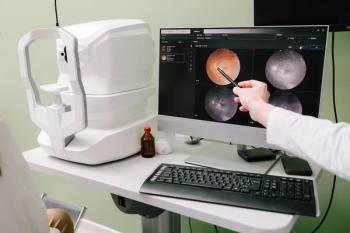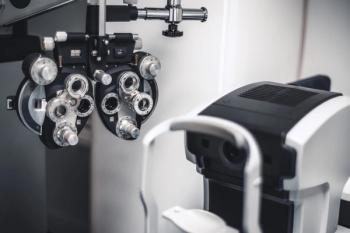
Kiora Pharmaceuticals receives grant funding for novel clinical trial endpoints for inherited retinal diseases
The goal of the grant funding from the Choroideremia Research Foundation is to support validation of functional vision assessments for patients with profound blindness.
Kiora Pharmaceuticals Inc has received grant funding from the Choroideremia Research Foundation (CRF) in support of validating functional vision assessments for patients with profound blindness.
According to a news release, functional vision assessments are task-oriented challenges that are created to imitate real-world environments. Importantly, functional vision assessments have served as approvable endpoints in registration/marketing authorization studies by worldwide regulators.1
The company noted grant support will provide a financial boost for additional validation of the Multiluminence Orientation & Mobility (MLOMT) suite of tests, designed and developed in partnership with Ora, Inc., enabling their use in Kiora's upcoming ABACUS-2 Phase 2 clinical trial assessing KIO-301.
ABACUS-2 (NCT05282953) is a randomly assigned controlled trial investigating KIO-301 for vision restoration in patients with late-stage retinitis pigmentosa; and if successful, could serve to restore vision in patients with choroideremia and other inherited retinal diseases (IRDs).
The company announced it recently received approval for the clinical validation study, and validation work can now begin shortly and will be performed in collaboration with Professor Robert Casson, MBBS (Hons), M.Biostat, DPhil, FRANZCO, consultant ophthalmologist at the Royal Adelaide Hospital and head of Ophthalmology and Visual Science at Adelaide University.
The goal is to work with IRD patients to refine and validate specific endpoints to objectively and reliably measure functional vision changes, providing a standard and acceptable assessment for global regulatory bodies.1
Kathi Wagner, executive director of the CRF, noted its patient community is encouraged by the new technologies and treatments under development for choroideremia.
“Importantly, we also recognize that rigorous, standardized assessments of vision correlating to improvements in everyday life are required to bring these treatments to the marketplace,” she added in the news release. “The CRF's contribution under this grant will help ensure appropriate tests are available for all drug developers. This grant is ultimately about providing greater clarity on the pathway to approvability."
According to the news release, the validation work will build upon data from Kiora's ABACUS-1 trial, a feasibility study assessing safety and efficacy of its investigational drug, KIO-301. With feedback from Kiora's pre-IND meeting with the FDA, Kiora and Ora will validate the latest generation of functional endpoints.
Keith Lane, vice president, Posterior Segment of Ora Inc, lauded the work.
"We are thrilled to play this important role in developing vision restoring therapies to those most in need and look forward to having the MLOM tests front and center for next generation therapies,” he said in the news release.
The validation work will be performed in Australia as part of an extension to ABACUS-1.
"We want to thank the CRF for their financial support and entrusting us with taking on this important work," Eric Daniels, MD, MBA, chief development Officer of Kiora, concluded in the news release. "As we look to advance KIO-301 through clinical development across multiple IRDs, including choroideremia, input from regulators, physicians, and ultimately patients is essential in helping shape the pathway to market for not only our drug, but for therapies potentially benefiting the entire community."
Earlier this year, Kiora announced it had entered a strategic development and commercialization agreement with Théa Open Innovation (TOI), a sister company of the global ophthalmic specialty company Laboratoires Théa.
According to a news release,2 under the agreement, Kiora granted TOI exclusive worldwide development and commercialization rights, excluding Asia, to KIO-301 for the treatment of degenerative retinal diseases.
According to the company,3 KIO-302 is a small molecule, referred to as a molecular photoswitch, designed to confer light-sensing capabilities to retinal ganglion cells (RGCs). In healthy eyes, light detection is primarily performed by photoreceptors (rods and cones). In patients with numerous types of inherited retinal disease, mutations in one of more than hundreds of known genes can lead to the death of photoreceptors.
Moreover, the company noted the retinal degeneration results in lost vision for the patient. KIO-301 is able to selectively enter RGCs downstream of degenerated photoreceptors and once inside, KIO-301 interacts with voltage-gated ion channels. When light hits RGCs, KIO-301 alters its shape to change the flow of current, thereby activating the neurons, and resulting in signaling the brain. When light is removed, KIO-301 reverts to its lower energy shape, stopping the signaling to the brain. In this way, the molecule acts as a light switch within the eye.3
References:
Kiora Pharmaceuticals Receives Grant from Choroideremia Research Foundation to Fund Novel Clinical Trial Endpoints for Inherited Retinal Diseases; Approval Granted to Initiate Clinical Validation Study. Kiora Pharmaceuticals, Inc. Published April 11, 2024. Accessed April 11, 2024.
https://ir.kiorapharma.com/news-events/press-releases/detail/211/kiora-pharmaceuticals-receives-grant-from-choroideremia Inc KP. Kiora Pharmaceuticals and Théa Open Innovation Enter Strategic Agreement to Develop and Commercialize KIO-301 for the Treatment of Inherited Retinal Diseases; Total Deal Value of up to $301 Million includes $16 Million Upfront, up to $285 Million in Clinical Development, Regulatory and Commercial Milestones, Plus Commercial Royalties. Newsfile. Accessed February 1, 2024.
https://www.newsfilecorp.com/release/196399/Kiora-Pharmaceuticals-and-Tha-Open-Innovation-Enter-Strategic-Agreement-to-Develop-and-Commercialize-KIO301-for-the-Treatment-of-Inherited-Retinal-Diseases-Total-Deal-Value-of-up-to-301-Million-includes-16-Million-Upfront-up-to-285-Million- KIO-301. Kiora Pharmaceuticals. https://kiorapharma.com/technology/kio-301/
Newsletter
Want more insights like this? Subscribe to Optometry Times and get clinical pearls and practice tips delivered straight to your inbox.




























